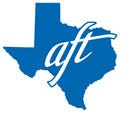‘Nothing is off the table’ in next step for school finance bill
The Dallas Morning News reports on the status of school finance plans, and it’s good to hear that the headline with “ground zero” was clarified to mean another starting point for reconciling the two funding plans, rather than obliteration of the proposals from nuclear destruction:
“Nothing is off the table. We’re starting at ground zero,” Rep. Dan Huberty, R-Humble, said Friday as the 10 members of the House and Senate conference committee met for the first time to negotiate the school bill. The chambers have two weeks to resolve their differences and pass a final version of the bills.
….For months, teachers have set their sights on a $5,000 pay boost promised by the Senate. But when the dust settles, the actual increase will be a compromise between the Senate’s $5,000 for all teachers [and librarians] and the House’s pay raise, which is about $1,850 per educator and would include school staff, such as counselors, nurses and cafeteria workers.
“The pay raise is in there, but I can’t tell you we can hold the line at $5,000,” said Sen. Larry Taylor, R-Friendswood, who wrote the Senate version of the school bill. “The whole bill is up for negotiations.”
For those not up to speed, the Texas Senate and House both have plans they are pushing for one bill (HB 3), and since the plans differ in some significant ways, five members from each chamber will meet in a conference committee to work out a compromise and a final bill. That bill then will need approval from both chambers again before the end of May, and then a signature from the governor to make it law (likely by early June, but as late as June 16).
In reading comments and emails from teachers, one thing that’s clear is that way too much focus is on the Legislature. At this point I would ask readers, “What has your school district proposed for salary increases in its budget?” The majority of districts are finalizing their budgets now, although they have until August 31 to approve them locally. So districts initially can’t rely on new money — however likely that they will get it — in their budget process. But all will have to propose something now for school employee salaries, which can be revised if the state does approve additional funding.
Our local unions are well versed in scouring budgets to see what’s truly available and fighting for local raises. (In fact, our local for Austin ISD — Education Austin — is holding a rally at its School Board meeting tomorrow rejecting the idea of a 1% pay raise and demanding more.) But in the absence of local organized advocacy, it’s up to you and your peers to figure out what’s being proposed now locally, and how that can change with a new school finance plan.
The House and the Senate are in tune with property tax changes in the bills, so that leaves a couple more sticking points, both of which are of major concern for us.
After pay raises, the two chambers will have to hammer out some philosophical disagreements on policy.
The Senate bill includes merit pay for teachers in the form of a $127 million program that allows local school districts to lavish additional salary increases upon the top-ranked teachers. The House bill doesn’t include merit pay.
Teacher groups loathe merit pay because they say it will rely on unreliable state standardized testing to determine the best teachers.
But some school superintendents, such as Dallas ISD’s Michael Hinojosa, have expressed support for the program because they say it gives school districts flexibility to reward and incentivize faculty members.
The House and Senate plans also differ in that the Senate includes outcomes-based funding, financial rewards for school districts with higher achieving students.
That “higher achieving students” means higher STAAR scores, which means it would put even more emphasis on excessive test prep and teaching to the test. Not to mention it’s a rather absurd idea — not giving more funding to students who are struggling to achieve, and instead rewarding those with higher test scores.
Finally, remember that while Texas AFT will be fighting for the highest possible guaranteed raises funded by the state for all school employees, there’s another half of the education community — most superintendents, a lot of school board members, and the associations that represent them — fighting for a plan that gives them the most local flexibility to decide on pay raises. Since they are advocating flexibility, they should be willing to share their plans for pay raises with their school employees.
by Rob D’Amico, Texas AFT Communications Director
(Follow on Twitter @damicoaustin and @TexasAFT)
